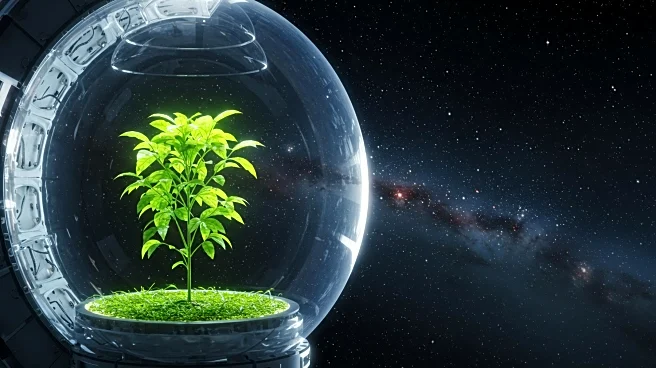What's Happening?
NASA's recent study, published in npj Microgravity, explores the connection between space agriculture and astronaut health. The research indicates that plants grown aboard the International Space Station have lower concentrations of essential nutrients compared to those grown on Earth. This nutrient deficiency could impact astronauts' bone health and immune function during space missions. The study involved collaboration among NASA's Analysis Working Groups, integrating data from plant nutrition profiles, gut studies, and astronaut blood biomarkers.
Why It's Important?
Understanding the nutritional quality of space-grown crops is vital for long-duration space missions, such as those to the Moon and Mars. Nutrient deficiencies in space-grown food could exacerbate health issues like bone loss and immune dysfunction in astronauts. This research is crucial for developing strategies to enhance the nutritional content of space agriculture, ensuring astronauts receive adequate nutrition to maintain their health during extended missions.
What's Next?
NASA is exploring bioengineering plants to increase nutrient content and incorporating antioxidant-rich species into space diets. Personalized nutrition plans based on astronauts' genetic information are also being considered. These strategies aim to address health challenges like increased intestinal permeability, which affects nutrient absorption and immune response in space.








